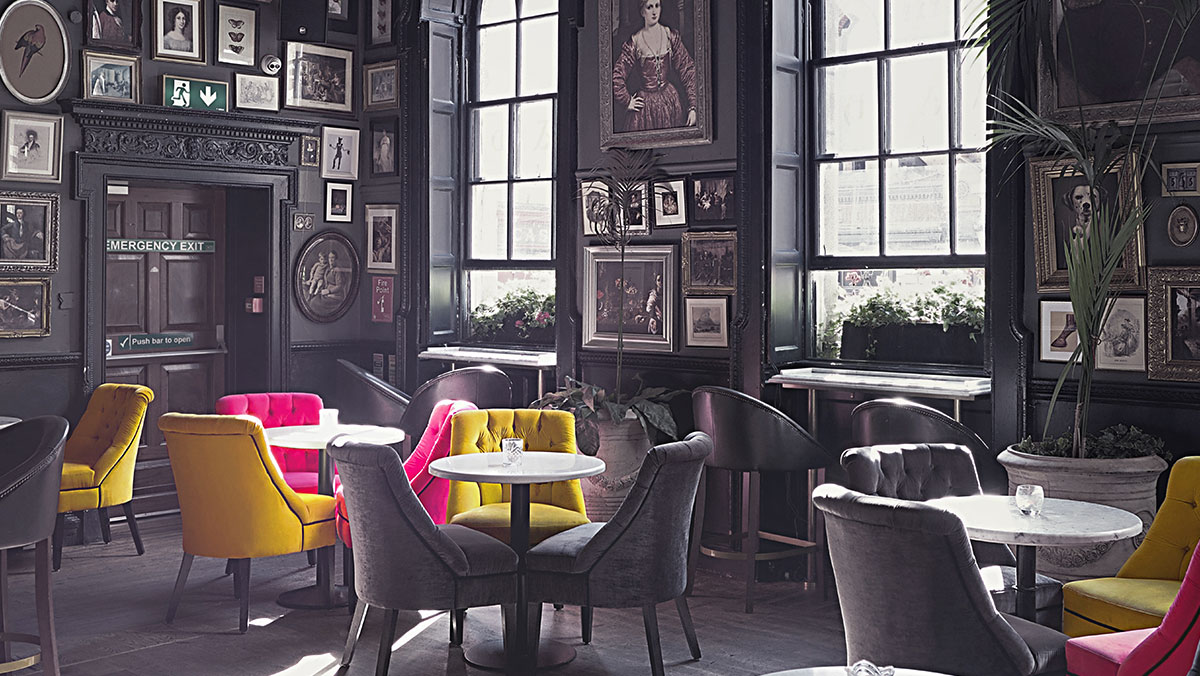
‘Restaurant with rooms’ – an unassuming title for what has become one of the hottest luxury hospitality models in recent years. It sounds like a simple formula for success. This article asks what are the key lessons for luxury hospitality branding.
The last year turned our focus towards nights away that were closer to home. In the UK, it was the renovated countryside inns or country houses that have been in the limelight. The exemplar being The Pig hotels, with The Pig in the South Downs opening earlier this year following the success of the seven Pigs that came before it. If you were looking to enjoy Cornwall’s rural countryside, then you might have chosen Coombeshead Farm, where you can enjoy a five-course set dinner menu almost entirely sourced on site. The list of Britain’s in-the-know restaurants with rooms appears to be endless.
The very label ‘restaurant with rooms’ makes it clear that the food and kitchen are at the heart of why you are here. It humbly implies that the bedrooms are just there for you to crawl up to after dinner, (far from the truth, the beautifully decorated interiors tend to be a luxury of their own). The Pig in the South Downs is a Regency house complete with a greenhouse restaurant, rolling views, kitchen garden, its own vineyard, and even a pickling room. The ingredients used by the restaurant are grown in the garden or sourced from within a 25-mile radius. Wellies are provided to wade out into the gardens and grounds, and maps to go walking nearby.
What this model understands is that food provides an unbeatable anchor to place. A deep-rooted and intimate connection to the land and culture you are in. Food has always been a way to experience culture; the two are in many ways inseparable. In consuming the products of the land and of the culture, you are in some way partaking in the culture itself, whether it be in Puglia or Kent. Restaurants with rooms focus on local, sustainable, producers and produce, and talented chefs elevate this idea. What surprises on the plate is a combination of the local natural environment and the creativity of chefs, reflecting their integrity and a serious love of fun. To taste the place defies words, it is a tangible and sensory appreciation of what is around you, vivid, and evocative.
Arguably, all the best hotels are part of the culture they are located in. Place is everything. The ability of a hotel to connect the inside and outside experiences is a big part of the appeal. The Hoxton open-house hotels have been an advocate for this approach, their brand is “inspired by the diversity and originality of the streets and scenes that surround us”. They aspire to support the independent communities that live and breathe around them, to invite them in, and interact organically with them. Their lobbies become collaborative spaces and a buzzing neighborhood hot spot.
This deep connection to place isn’t always true of luxury hotels. Increasingly, there has been a disconnect between many luxury hotels and the places they are located in. The rise of an international hospitality style, and global members clubs like Soho House where many Houses share an aesthetic, experience, and even menus across some of their sites from London to LA. The appeal here is that of a global creative community, and being able to eat the identical favorite club sandwich wherever I am in the world.
All luxury hotel brands, of course, need a central philosophy that is consistent across all locations and activities. This defines an aspirational form of living wherever you are in the world and will attract like-minded guests seeking consistency and the known. But it is when that philosophy also embraces, encourages, and centralizes a heartfelt connection to place, like with The Pig or The Hoxton, that sparks fly.
During the last year, many of us have felt isolated and atomized in our daily lives, estranged and dislocated from other places. Travel is about discovering a place at a specific moment in time and experiencing hyper-localized food has become central to that for many. While generic luxury and the heavy hand of corporate hospitality branding will continue to suit some, the concept of the restaurant with rooms and local food will be far more inspiring to many others. Such sensorial and emotional experiences become unique to the brand – bespoke and rooted – they are memorable, meaningful, and synonymous with the place. A reason to build brand loyalty and for travelers to return with the changing seasons.
Cover image source: tom balabaud